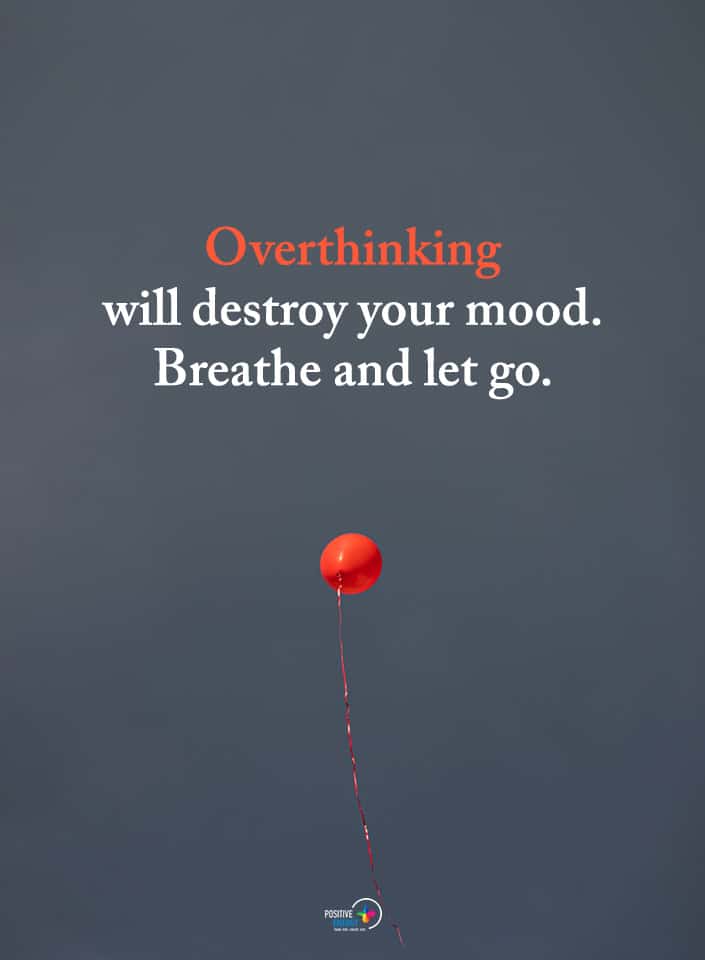Contrary to common belief, anger isn’t bad. It’s pretty normal and healthy. In controlled levels, anger can help you stand up for things you believe in or even manifest the most honest version of yourself. But how do you cope with anger? How do you express it, healthily?
Take a moment to reflect on your anger issues. Do you overreact when someone cuts you off in a banking line? Does your blood pressure spike whenever your kids go against your rules? Do you say things when angry that you later regret? Perhaps this is a piece for you.
Managing Anger is Easier With These Ten Hints
Uncontrolled anger can be detrimental to your relationships and health. Learning ways to manage your anger will help you be in control of the actions and things you do after that. The following as ten insightful tips to help you control your anger the right way.
1 – Recognize anger rising
We aren’t going to promise that you won’t be in a foul mood after trying out these tips when managing anger. While anger can be difficult to stop once it starts rising, detecting the feeling can be vital to controlling it. Identifying the anger feeling early allows you to redirect the emotions and thoughts to a more constructive place.
Anger triggers various physical reactions within the body. In the process, it produces adrenaline, a hormone responsible for preparing you to react in the response of conflict or danger. When angered, you may feel:
- An increased heartbeat.
- Clenched fists and grinding teeth.
- Fast breathing.
- Sweating and trembling.
- Raising your voice.
- Shaking.
- Being defensive, snappy, and argumentative.
2 – Step back
In the moment where you realize your anger emotions bursting, you could buy some time to limit the anger response. Stepping back is an effective measure in managing anger. Consider taking a short walk to think about the situation and calming down.
You could also try counting to ten while focusing on bringing the emotions down. Sometimes, what you need is to talk to someone who wasn’t directly involved in the crisis or conflict that caused the angry reaction. You could approach a friend, family member, or even a counselor to express the thoughts triggering the anger vocally.
3 – Work out your anger triggers
According to statistics, there are many reasons behind your anger outbursts. Maybe it’s the stress that has been building up from a dysfunctional relationship back at home. Perhaps it’s because someone at work has been maltreating you.
Things like how people don’t respect your limits and boundaries are quick loopholes that could make you snap. You might want to reflect on your day and ask yourself why you have sudden unusual reactions towards a particular person or action. Other reasons, such as hormonal imbalances, life frustrations, and pressures, can easily cause mood swings.
If you take the time to pinpoint your anger outbursts’ main causes, you will have the upper hand in managing anger.
4 – Learn various anger management techniques
Anger can be highly destructive if not contained on time and in a subtle way. Managing anger can mean the difference between saving a relationship and completely destroying it. Certain tested anger management techniques have proven to distract or calm individuals for a considerable duration adequate to process thoughts constructively.
As earlier stated, every individual is different. You need to find something that works for you and calms you to a level you can think straight. Some of these useful anger management techniques include:
- Taking deep and slow breaths.
- Exercise and yoga.
- Ease physical tension.
- Meditation.
- Build distractions.
- Get adequate sleep.
5 – Identify solutions for the anger triggers
Many people make the mistake of focusing on things that made you mad instead of working on a solution to the anger triggers. After identifying what makes you snap, you could write down solutions for the problem. For instance, is your boss always screaming and yelling at you for absolutely no good reason? Does your child infuriate you every time you walk by his room, and it’s always messy? Here are some solutions.
You could talk to your boss and express your concerns about how they relay frustrations and messages. Close your child’s door to avoid coming across the very things that infuriate you. Always remind yourself that anger outbursts don’t work.
6 – Find ways to manage your thoughts
Experts discourage focusing on angry thoughts believed to add fuel to your anger, often coined as cognitive thinking. Part of managing anger consists of holding positive perspectives on life. Reasoning like this, “I can’t stand it. This child will make me go nuts,” will only surge your frustrations.
Learn how to re-frame your thoughts and frustrations. Convert your reasoning to something like, “Raising kids is a process; mama said that.” You are likely to stay calmer if you focus on the facts without adding distorted exaggerations and catastrophic forecasts.
It might help if you developed a mantra to calm you and cut down the angry thoughts. With time, you will find that logic defeats anger even if it’s justified because it clouds judgment. Work on your mind through self-reflection to gain a more balanced perspective of life and watch it work wonders.
7 – Try therapy
In some extreme cases, anger turns you into a violent person, which isn’t healthy. Signs such as getting involved in physical confrontations, breaking objects, getting on the wrong side of the law, and physically assaulting a child or partner are clear indications you need to see a professional.
Some of these extreme anger outbursts may be signs of underlying mental health issues such as bipolar disorder, substance addiction, or borderline personality disorders. You may want to approach a professional to help you manage extreme anger issues. Your therapist will equip you with stress and anger management skills to control your anger and act accordingly.
A professional will also help you understand your anger triggers, where they emanate from, and eventually managing anger.
8 – Learn to control your anger during confrontations
In most cases, anger erupts when confronting others about events, problems, or grievances. How do you address your concerns while limiting the chances of triggering your anger eruption? You might want to learn how to converse and address these prickling concerns productively.
From your end, you may help prevent the escalation of the confrontation by avoiding words such as “always” or “never,” which often sparks more anger within a conversation or obstructs the other party from believing that a situation can change. Experts recommend letting go of grudges and resentment that make it hard to control anger building up. Learn how to cultivate positive vibes and humor to avoid sparking outrage. Avoid sarcastic and harsh humor at all costs.
Consider your timing. After a long day at the office, the last thing you want is arguing with your spouse over dishes. Be smart about how you approach arguments by not bringing up issues and talk times when the other party is in a foul mood. Look for perfect venues and times to talk about sensitive topics. Working towards compromise maturely and healthily encourages positive emotions among parties involved in the argument.
9 – Improve your communication skills
Anger tends to fuel under-thought reactions that fault you into jumping into conclusions in which a majority of these conclusions are widely inaccurate. If you find yourself in a heated conversation, tame your mind to slow down and keep your mouth closed. This response will help you think through your responses.
You’ve probably been there in a heated conversation where you let out something harsh that you can never take back. Pay attention to what the other person is saying before answering. Be compassionate and try to understand what prompts their anger.
Picture this; you are probably different from your partner in that you love your space and freedom while your spouse believes in more connection and closeness. If you approach the argument with anger, you may paint your partner as a jailer or choker around your neck, which isn’t true. Practice effective communication skills.
Relaying messages effectively will help your partner see life from your point of view. While it’s natural to get defensive when criticized, calm down, and listen before tackling. You could ask for some breathing space to think about the other party’s points and avoid escalating it into a disastrous one.
10 – Switch channels
Do you feel like the only thing that will make you feel better during an argument is punching your friend’s face? Don’t, that’s just the adrenaline talking. Instead, go home and channel these emotions to distractions in your normal routine.
Consider deep cleaning the bathroom, playing with the kids, or baking that cake you’ve always wanted. Distract your mind from doing the harmful and watch your body and brain calm down.
 Final thoughts on managing anger
Final thoughts on managing anger
Some people choose to condone their anger outbursts and channel them in the wrong direction. While these behaviors might yield short-term results, the consequences are detrimental and deep-staining. Two or three words are enough to send a relationship to its grave.
Learn a few things from this piece about managing anger and emotions and choose a healthier way to handle arguments and hefty discussions. These insightful ways go a long way to building healthy relationships, mindsets, and peace. Try them today!



 Eight Signs You May Be a Hypochondriac
Eight Signs You May Be a Hypochondriac 5. Excessive Worrying About Minor Symptoms
5. Excessive Worrying About Minor Symptoms Final Thoughts on Signs You May Be a Hypochondriac, According to an Expert
Final Thoughts on Signs You May Be a Hypochondriac, According to an Expert















